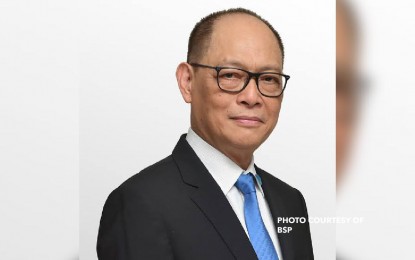
Bangko Sentral ng Pilipinas Governor Benjamin Diokno
MANILA -- After a total of 400 basis points reduction in big banks’ reserve requirement ratio (RRR) thus far this 2019, Bangko Sentral ng Pilipinas (BSP) Governor Benjamin Diokno said they are not keen for another aggressive cuts next year.
In an interview by journalists Tuesday night, Diokno said what he can assure the market is that the RRR will be in single digit by the end of his term in mid-2023.
“As you can see, we provide forward guidance unlike other central banks who keep it vague,” he said.
To date, RRR of universal and commercial banks (U/KBs) is at 14 percent, thrift banks (TBs), 4 percent; and rural banks (RBs), 2 percent.
These cuts were made partly to make it at par with other central banks in the region and to help support the domestic economy by encouraging banks to lend more.
A percentage point slash on bank’s RRR is estimated to release about PHP90-billion liquidity into the economy.
Diokno discounted the same level of RRR cuts for next year, saying the policy-making Monetary Board (MB), which he chairs, still has 14 quarters to monitor developments and assess how much they need to cut at a certain period.
“That's my forward guidance so I'm not in a hurry to cut the RRR,” he said.
Diokno said they want banks to strengthen their lending activities instead of keeping the money with the BSP because this is a cost for the central bank.
Diokno further said he will slightly step on the brakes when it comes to the key policy rates reduction after the 75 basis points decline so far this year.
He said they also continue to check on the policy rate decisions of their counterparts’ overseas vis-a-vis its implications of the economy.
Banks from other countries, Diokno said are still easing policy rates and if the Philippines do not keep up, then this will encourage portfolio investments, or hot money, due to high domestic interest rates.
He said the country does not need an abnormal rate of hot money inflows, which will then be withdrawn once rates decline.
“So we'll observe what other countries are doing. At the moment, we are very comfortable to where we are - - our economy is good, inflation is low, GIR (gross international reserve) is high, (and) the exchange rate is very stable,” he added. (PNA)
